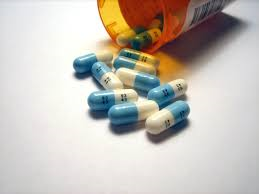People who have been prescribed expensive brand-name drugs know how much it can hurt their wallet. The good news is that close to 80% of all brand-name medications have a generic counterpart. Oftentimes, generics are perfectly fine; other times a generic isn’t available or is not recommended by your doctor. So, most people accept the higher cost brand-name drugs and figure there’s not much they can do. Well, depending on the situation, there can be some very good ways to lower drug costs. There are programs available for those experiencing financial hardship, but there are also options available for anyone, regardless of income.
If you’re skeptical, check out this article, where a gainfully employed 64-year-old finds a way to pay a $5 copay for Humira, the drug he takes for arthritis. This drug retails for approximately $1500/month! The article describes programs available to anyone in the U.S., however, it also offers information on a couple of programs that are state specific. I will provide information specific to Georgia throughout this post.
Below are the three main categories of health insurance. There are other ways to obtain coverage, but these categories cover the vast majority of people. Some of the options to lower drug costs are exclusive to one category; other options are available regardless of your policy type.
Group Plans
For the most part, people on group plans are insulated from the high costs of prescription drugs. Sure, they may pay a higher copay, but overall, the costs are still fairly reasonable — even for non-preferred brand-name drugs. Something many people don’t realize, is that most insurance carriers offer a broader, more robust drug formulary (list of covered medications) for their group plans than they do for personal plans or Medicare Part D plans. Even with the better drug coverage, people on group plans can still encounter very high out-of-pocket costs. Sometimes, this is a result of the plan design; but often it’s because the drug is considered a “specialty” drug and requires much higher cost sharing by the plan member.
What to do?
- Generics & Free Samples: Consult with your doctor. Don’t just accept the higher cost. Ask your doctor if there is a lower cost therapeutic equivalent drug (if no generics are available). Generic drugs are required by the FDA to be tested and to have the exact effect as the brand-name equivalents. You can also ask for free samples…but these are usually brand named drugs (the pharmaceutical rep wants the doctor to prescribe these drugs.)
- Split Pills: Ask your doctor or pharmacist if it makes sense to split your pills to save money. Make sure it’s not an extended release drug. If your doc prescribes a dosage of 10mg, but you can also buy the same drug at 20mg, it could make sense to split. Depending on the drug and dosage, this can be a real money-saver.
- Manufacturer or Pharmaceutical Assistance: Ask your doctor if the manufacturer provides any assistance. You can do some homework by searching online for the drug name and manufacturer to see if they can help (see article referenced above).
- Patient Assistance Programs. Many times, this can result in a huge savings. Doing an online search for these programs is a great way to start. They can do a lot of the work for you so you don’t have to research each drug. Four of the best programs are below:
- Needy Meds: www.needymeds.org
- Lone Star ScriptCare: www.lsrxcare.org
- Partnership for Prescription Assistance: www.pparx.org
- Rx Hope: https://www.rxhope.com/
Government Plans: Medicare, Medicaid, and VA Plans
Medicare: People over age 65 can obtain prescription drug plans through a Medicare Advantage plan or through a Part D plan. Either way, there can be substantial out-of-pocket costs for expensive name-brand drugs. I have had many clients discover there is NO coverage for certain drugs that were covered by their employer-sponsored plan. The resources listed above are the best way to find help. If they qualify financially, then the Low Income Subsidy (Extra-Help) is available. Sometimes, it makes sense to ask doctors for samples while in the Coverage Gap, AKA “donut hole”. An experienced agent can help compare Part D plans and recommend the ones that result in the lowest out-of-pocket costs.
- Part D Extra Help: http://www.medicare.gov/your-medicare-costs/help-paying-costs/save-on-drug-costs/save-on-drug-costs.html
- Medicaid: If not sure if your income is too high to qualify for Medicaid (or subsidized plans with reduced cost-sharing), find out here or here.
- For veterans in need of prescription drug help, please click here.
Personal Health Plans
People with personal plans (non-group, under age 65) can select plans with good pharmacy benefits. They can, with the help of an agent, compare carrier pharmacy benefits and formularies. However, as I explained earlier, even the best personal plans have comparitively weak drug formularies. Commonly, some of the more expensive drugs simply aren’t covered. So, the options listed above can be helpful, especially the Patient Assistance Programs.
Other ways to reduce costs are as follows:
- Comparison Sites: In the past, it was a tedious process to shop around to find the lowest cost medications, but now there are some excellent sites that will shop all the pharmacies in your area. The best ones are: www.goodRx.com and www.lowestmed.com
- Discount Cards andDiscount Programs: Several of the same websites listed above also have free discount Rx plans. It is also worth asking your local pharmacies if they have any discount programs. Show them your medication costs and see if you they can do better.
- Canadian pharmacies: I have many clients with high deductible HSA compatible plans who get there medications through Canadian pharmacies. Not everyone is keen on this option for various reasons, however, one of the most reputable Canadian pharmacies is at www.blueskydrugs.com
I would be remiss if I didn’t mention one more very important way to lower your drug costs: Stop taking unnecessary drugs. It is extremely important to check with your doctor and/or pharmacist to make sure you are not taking any unnecessary drugs. Sometimes, the dosage can be lowered; other times, there is duplication of drugs that can be eliminated. Check on this periodically to make sure you are doing the best you can for your physical and financial health!
Georgia Resources: http://www.mygeorgiacares.org/
Greg Sanders Peachtree Insurance Advisors 678-236-1600


